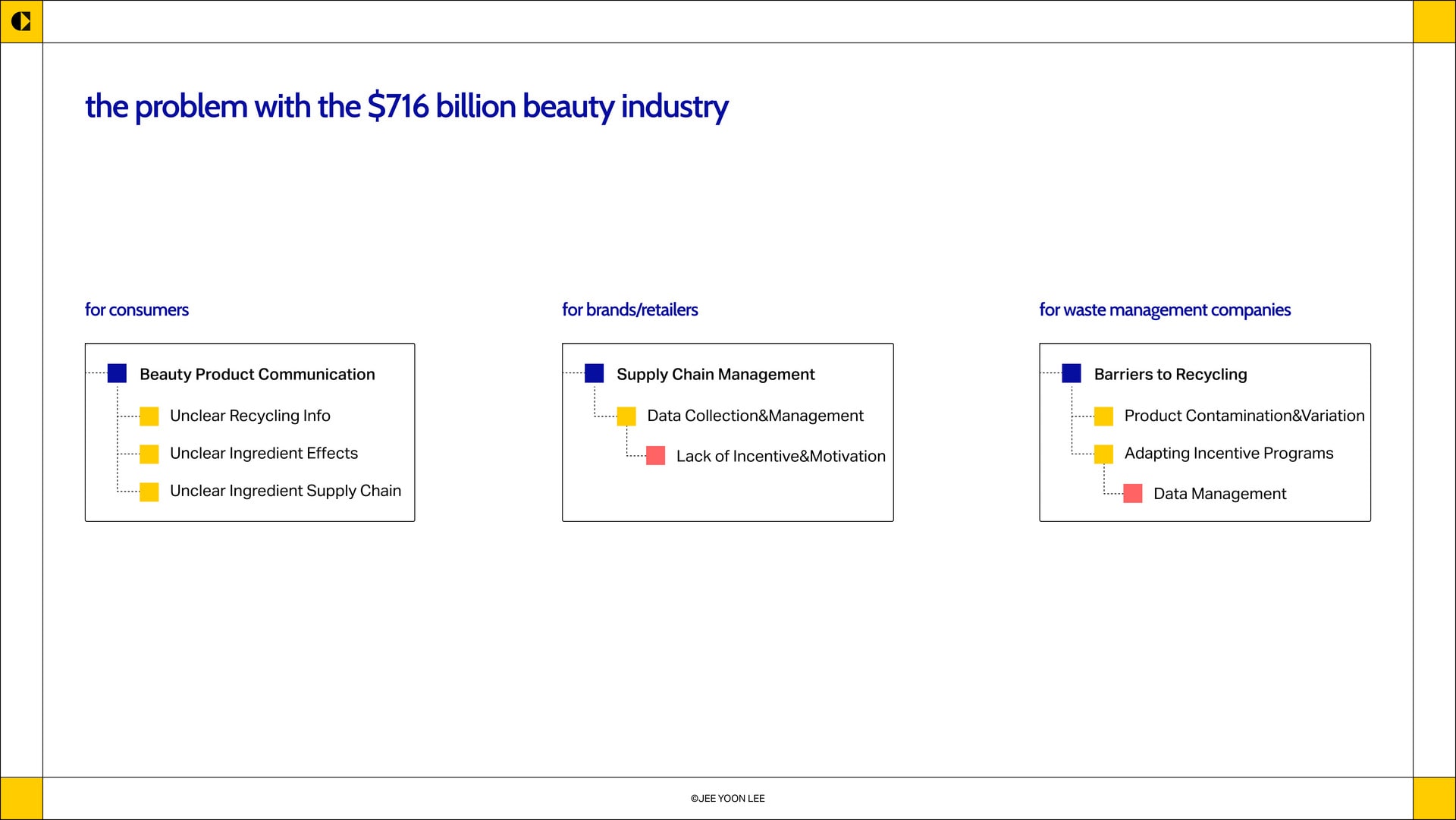com•pounds is a blockchain-based digital product identity management system that connects brands, retailers, and circular economy stakeholders for transparency in the beauty supply chain. It invites a response from the beauty actors in how we design, source, and build everyday products by facilitating collective management of materials and ingredients.
Despite interventions occurring in the blockchain scene by unlocking supply chain traceability during the point of sale for marketing purposes, com•pounds even intervenes after the point of consumption to help waste management and brands/retailers to collaborate with data exchange on chemical ingredients, material information, and other product attributes for the improving the closed-loop cycle. To achieve a circular outcome, multiple systems must exchange data about products in a standardized manner.






